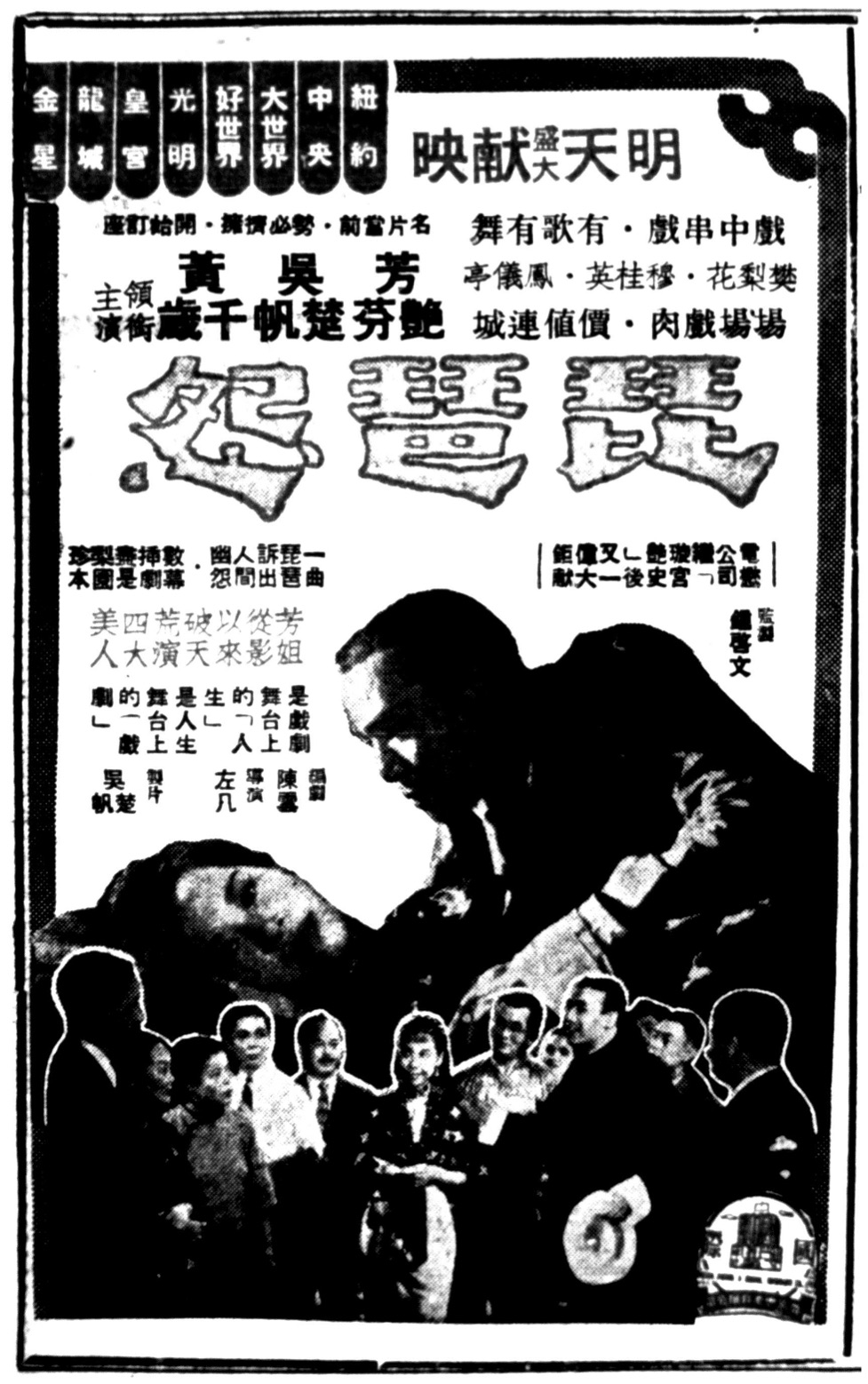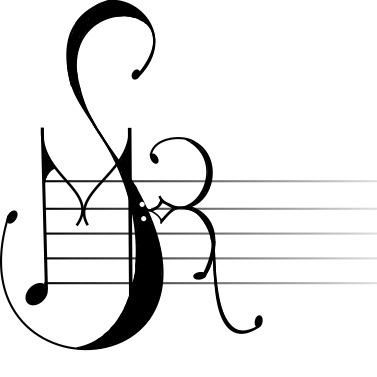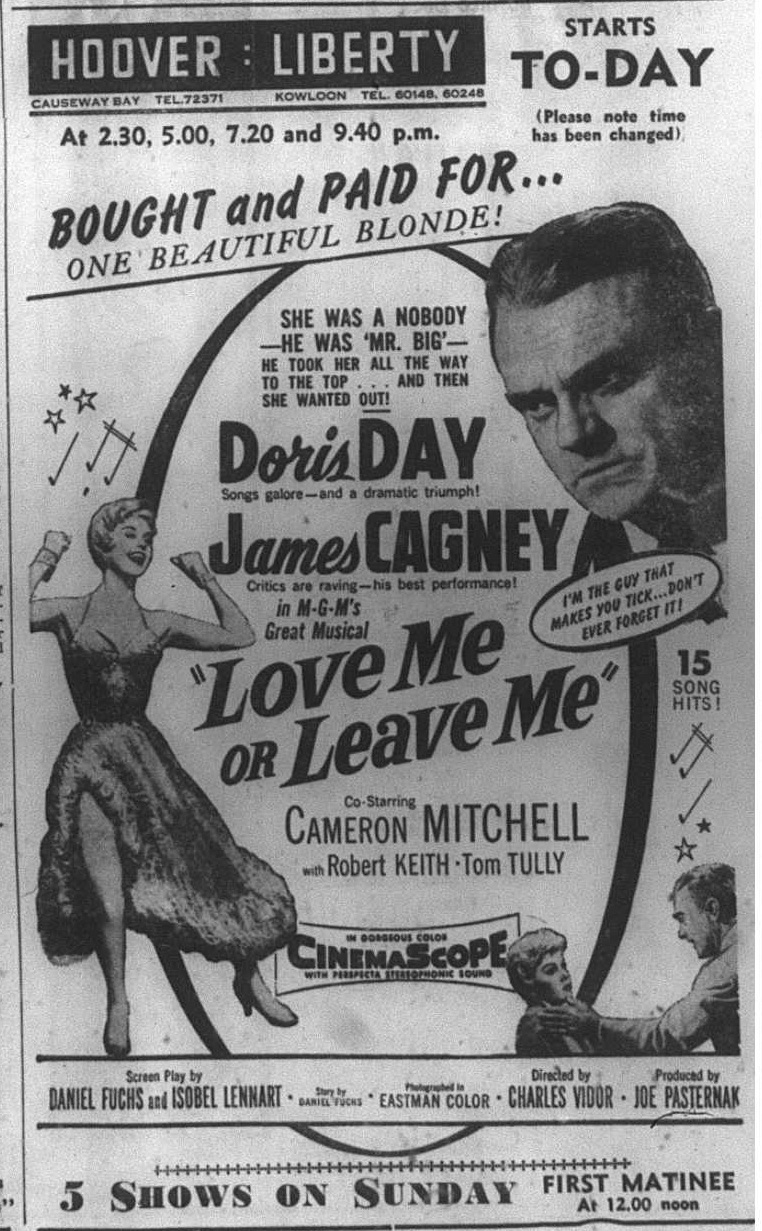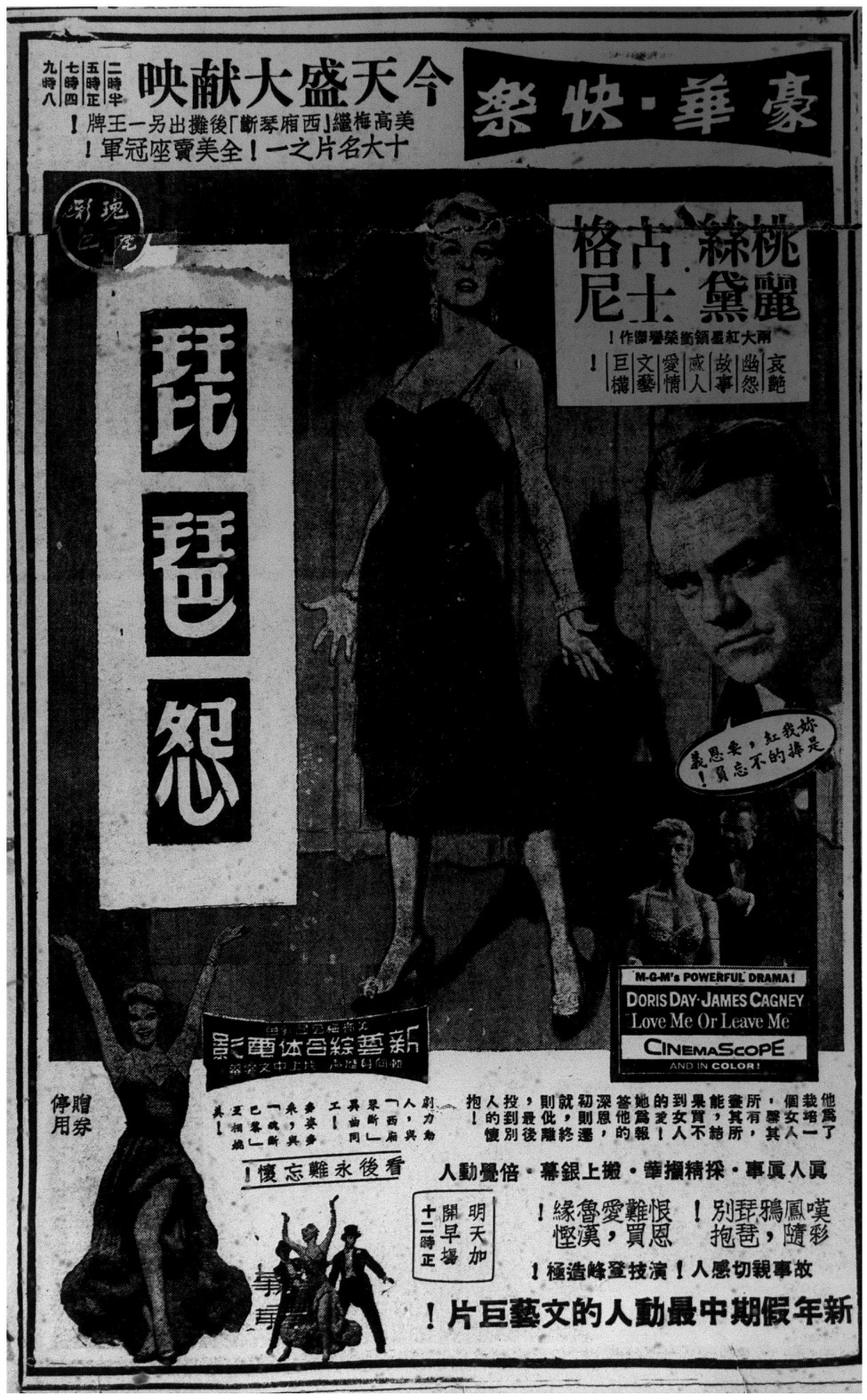
In early June this summer, I visited the Special Collections of the Hong Kong University Main Library, conducting archival research on the reception of particular Hollywood musical films and their Cantonese remakes through studying Hong Kong newspaper advertisements (in Chinese and English) from the 1950s. I was working on one of my three dissertation chapters on The Sorrowful Lute (Pipa yuan, 1957), a Cantonese remake of Love Me or Leave Me (1955), and I wanted to know more about how the remake made a cultural critique of the original by further moralizing the social status of cabaret singer.
A comparison between the Chinese and English advertisements of Love Me or Leave Me shows how the relationship between Ruth Etting (played by Doris Day) and Martin Snyder (played by James Cagney) is described with reference to different moral understandings of cabaret singers. The Chinese version includes notable elaboration (photo 1, lower half) on what Snyder has done for Etting, how Etting is unfaithful to Snyder, and why Snyder should be sympathized with, whereas the English version focuses on Snyder being exploitative toward Etting, which is best manifested in the caption “SHE WAS A NOBODY—HE WAS ‘MR. BIG’” (photo 2, upper middle), as well as in the depiction of Snyder holding Etting’s neck (photo 2, lower left). This provides some clues as to why, in The Sorrowful Lute, cabaret is viewed by all characters, including the female protagonist and the male antagonist, as morally and artistically inferior to Cantonese opera. Love Me or Leave Me and The Sorrowful Lute share the same Chinese title (i.e., Pipa yuan, see photos 1 and 3). One may wonder what Love Me or Leave Me has to do with the pipa, a Sinicized Chinese instrument; in fact, in early- and mid-twentieth-century Cantonese culture, pipa was a euphemism for those young prostitutes-to-be who sing well. In this sense, the aforementioned details about those advertisements contextualize or even affirm The Sorrowful Lute as a remake that takes culturally specific moral judgment about music performance in addition to textual faithfulness into account.
Click to enlarge and read captions…
—Ho-chak Law
Ho-chak Law is a seventh-year doctoral candidate in Ethnomusicology. He is currently finishing a dissertation titled “Cinematizing China Performatively: Film, Chinese Opera, and the Articulation of National Identity.”
Recent Posts
SMR to Host Midwest Graduate Music Consortium 2025 Conference – January 13, 2025
SMR Welcome BBQ at County Farm Park – October 01, 2024
Julian Grey defends dissertation – June 05, 2024
Michaela Franzen defends dissertation – May 21, 2024
Kai West defends dissertation – May 16, 2024
Micah Mooney and Carlos Pérez Tabares present at Music Theory Midwest – May 12, 2024
SMR end-of-year round-up at County Farm Park – April 25, 2024
SMR hosts Research Showcase – September 29, 2023
 Society for Music Research
Society for Music Research

